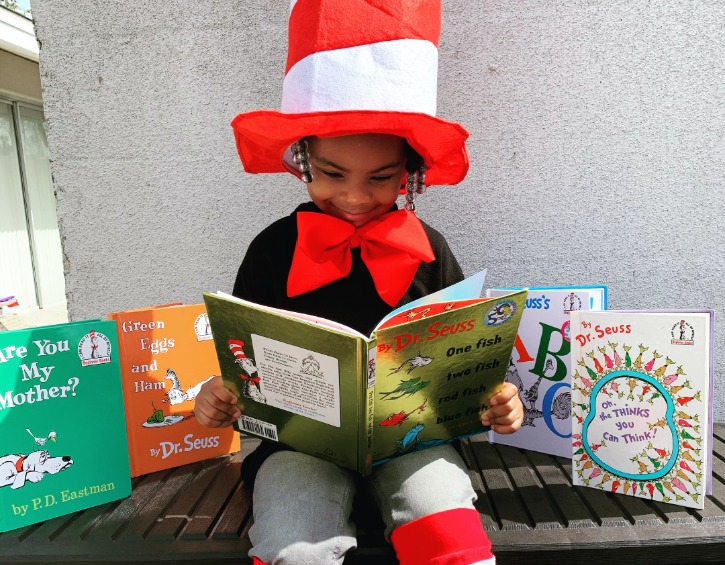
If your child is struggling to read or reading below their intelligence level, then they may have dyslexia. Here’s how dyslexia tutors, assessments and early intervention can boost your child’s reading ability.
One mama whose child has dyslexia shares her own learnings to hopefully help other families out there. Read on for some invaluable tips about dyslexia and helping your child learn to read!
Most children who are exposed to a language-rich environment – having stories read out loud to them, attending formal preschool, and who have limited screen time – will organically learn to read. However, some 20 percent of the population will struggle to learn to read using conventional methods.
What is dyslexia in children?
Simply put, people who read below their IQ or grade level may have dyslexia. Dyslexia is defined as “a specific kind of reading difficulty. Despite average to above average intelligence, children with dyslexia have difficulty learning to ‘decode, or read words by associating sounds and letters or letter combination.”
Read more: Guide to Special Education & Early Intervention Centres in Singapore
Some experts believe that the way reading is often taught – using a labour-saving, “whole language” approach to reading words early – exacerbates the problem of reading delays. Some children might be able to memorise words, but by third and fourth grade hit the “third grade wall” where their reading skills rarely progress.
Reading experts advocate an intensive direct phonics approach to reading, rather than the whole language approach. Admittedly because of the variations in English, a blend of both approaches is necessary. However, ask probing questions of your school to understand how extensive the emphasis is on phonics and morphology instruction, as science now shows that some educators have yet to adopt these techniques in the classroom.
Understanding co-morbidities in children with dyslexia
Half the children with a reading delay will also have another learning difference. For example, some children will often have both reading delays and Attention Deficient Hyperactivity Disorder (ADHD), or Sensory Processing Disorder, or dysgraphia and dyspraxia (handwriting), dyscalculia (arithmetic), speech delays, or other neuro-atypical issues.
Concentrate on helping your child learn to read, but realise there may be another challenge or cause of the reading delay to overcome. In the beginning, your child may not learn to read because they cannot pay attention; then they cannot pay attention because they can’t read. The circle cannot be unlocked. It’s critical to resolve the reading delay to help any child academically.
Why early intervention is key for children with dyslexia
Regardless of the cause of the reading delay, if a child cannot recognise the letters of the alphabet and match them to sounds, OR cannot read simple two- to four-letter words at age 5, you should consider intervention for suspected dyslexia. Many parents shudder at the thought of having their child diagnosed with a learning disability. Here’s the thing: Failing to get a child help because of pride or denial will, unfortunately, not lead to a favourable outcome.
As much intervention as you can assemble, as early as possible, will help your child develop new brain patterns – also known as neuroplasticity. Scientists have demonstrated that “intensive reading intervention leads to significant and enduring changes in brain function among poor readers, which correspond to demonstrable gains in reading ability.”
A dyslexia expert recommended the weekly homework schedule below for my child. By following this approach, she has gone from not knowing the alphabet in Primary 1 to earning excellent marks on her English composition (she is a lover of comic books, but not yet chapter books).
- Four hours a week of English tutoring via the Orton-Gillingham method
- 30 minutes a day of my child reading out loud. She writes down unknown words in vocabulary book and looks up its definitions in the dictionary.
- 30 minutes a day of an adult reading to the child out loud.
Reading is a critical life skill and it is essential that all children learn to read fluently in primary school. If children feel inadequate academically this can quickly become part of their self-concept and a self-fulfilling prophecy. If you think your child is delayed in learning to read or isn’t reading at grade level, here’s how to get your child the help they need.
Dyslexia support for children under age 5
- Provide a language rich environment. Limit your own screen time to when child is sleeping. Talk and read out loud as much as possible in English.
- Send your child to a quality preschool that emphasises a direct phonics approach to reading. This will require doing worksheets and drills on letter combinations to blend letters and sound out words.
- There is also some merit in taking a wait-and-see approach at this early age.
Dyslexia support for children under age 6
- Apply to be part of the Dyslexia Association of Singapore’s Preschool Intervention Programme. This programme meets once a week for two hours. Children are taught in small groups by a trained special needs educator who is especially focused on preparing children for primary school both academically and socially.
- Consider a school readiness evaluation at KKH Department of Child Development. Citizens and PRs can start at their neighbourhood polyclinic for a referral for a subsidised appointment.
- Buy Teach Your Child to Read in 100 Easy Lessons By Siegfried Englemann and work through the book every day. This book is a brilliant step-by-step guide for parents. It is broken into 15-minute lessons over 100 days, and teaches letter-sound correspondence, blending sounds, sight words as well as later reading comprehension.
Dyslexia support for children above age 6
- Get an Educational Psychological Assessment. Once a child is 6 years old, they are mature enough to sit for a completed educational psychological assessment. This will consist of one to two days of psychological and learning tests to determine the child’s memory, vocabulary, reading level, etc. The going rate for such a report is $2,000 (unsubsidised). The Dyslexia Association of Singapore has discounted rates but may also have a lengthy waiting list.
Psychologists and Dyslexia experts
Below are some psychologists I have personally used with my own children and can recommend as a starting place for parents needing to have a report prepared for their child.
- Jessie Ooh (former head of NUH child psychology), [email protected], Tel: (+65) 9430 3587, http://jessiepsych.com
- Dr. Tim Bunn (formerly with Dyslexia Association Singapore), [email protected], Tel: (+65) 6733 9249, www.sacac.sg/team
Get help from the Dyslexia Association of Singapore
- Request admission into the Main Literacy Programme. This is a group class for children who have been diagnosed with dyslexia. It meets twice a week to work on language and vocabulary, phonics, morphology, grammar, writing and reading comprehension.
- A formal educational psychological assessment with a dyslexia diagnosis is required for admission to the programme. Rates are available on the association’s website.
Dyslexia tutors, assessments and learning support in Singapore
- In addition to hiring a private tutor, the Dyslexia Association of Singapore also offers one-to-one tutors capable of creating custom lesson plans for individual children. In fact, the association recently saw 59 educators graduate from its dyslexia training programmes.
- Other independent tutors and private clinics may also offer reading support, and you can consult Sassy Mama’s Guide to Special Education and Early Intervention Centres in Singapore to get started.
- A popular method of reading intervention is the Orton-Gillingham method, and trained educators can hold a certificate from the Academy of Orton Gillingham Practitioners and Educators. Most educators are not trained to tutor individuals with reading disorders so please check all credentials carefully.
- Ask to meet with the learning support coordinator of your child’s school and find out what additional support and resources your school can offer. Provide a copy of your child’s assessment and ask that the school implement the recommendations of the psychologist.
- MOE’s Dyslexia Remediation Programme is available in some local primary schools in Primary 3 and 4 at no cost to the family. This small-group programme begins teaching phonics and other early reading skills in Primary 3.
Summer camps for children with dyslexia
- For families able to send their child overseas for a summer camp, children can make significant gains in reading ability. I personally saw a transformative change sending my child to a Camp Spring Creek for a four-week session, and a stint at Orton-Gillingham camps and clinics can be beneficial. Please check the camp schedules as they most often align to the American school calendar and may not be suitable to all children and families.
Support for parents of children with dyslexia
Children are adaptable and too often will find unhealthy coping mechanisms to assist or avoid reading in academic settings. My own child memorised dozens of words or would break out into a big, noisy tantrum if pushed beyond her limits. Neither of these coping mechanisms were healthy or sustainable. In hindsight, she had stealth dyslexia, and no one believed she couldn’t read because she was otherwise poised and articulate, coming from an educated English-speaking family.
I’ve done my own research on dyslexia and know that this situation is probably genetic; my child shares similar academic challenges and personality traits with her grandfather. I saw my own father held back in life; he took an extra year to finish high school, joined the military and ultimately was not able to finish university or achieve his career goals.
It gives me comfort to know this isn’t her fault or mine as a parent. Still, it is my responsibility to ensure she leaves my house with the life skills to support herself. I want my child to be able to do anything in life she sets her mind to accomplish. I feel that whatever she chooses as a career, it is possible now through the gains made with early intervention of her dyslexia.
In the modern economy, reading and writing fluently are the most critical skills to obtain financial independence. Through adversity, we are pushing forward with a web of tutors, teachers, school counsellors and parental glue that has enabled my child to now read and write at grade level. I am proud of all she has been able to accomplish despite her neurological differences.
I would advise you to “double down” and get your child as much help as early as possible. It can be expensive and stressful to accomplish four hours a week of therapy. I have seen my own child go from not even understanding the alphabet (she thought LMNO was a word!) to making excellent marks on English composition in three years.
We know that dyslexics are exceptionally creative people, sometimes called “4D thinkers.” A list of famous dyslexics names the who’s-who of Hollywood and business tycoons – Steven Spielberg, Octavia Spencer, Richard Branson, Jamie Oliver, and Whoopi Goldberg all have dyslexia, for example.
Furthermore, Massachusetts Institute of Technology (MIT) nicknames dyslexia “The MIT disease”, as so many of their engineering graduates are gifted in math and problem-solving, but struggle with English skills. Individuals who receive intervention for their reading disorder can live full and rich lives, if not exceptional lives, full of creativity and entrepreneurship.
You will need all the help, support and ongoing advice you can get. That’s why you should also consider reaching out to parent support groups on Facebook such as SSNAP: Singapore Special Needs and Parents. Lastly, if you’re in need of a little inspiration, please view this wonderful video by celebrity chef Jamie Oliver on his experience with dyslexia.






 View All
View All




 View All
View All








 View All
View All














